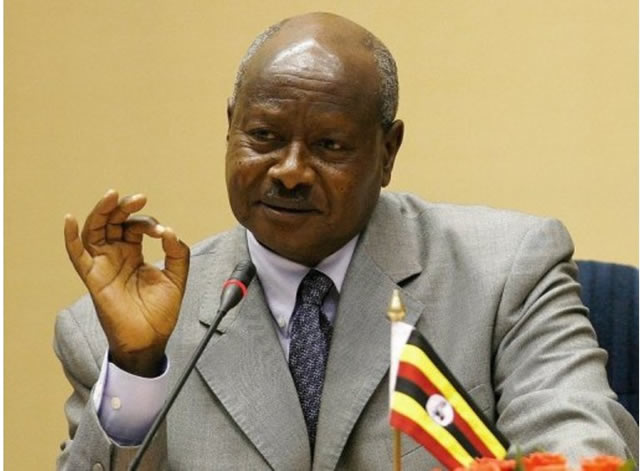
We enter the campaign year 2015 with two main party meetings behind us. Both were convened to sort out certain issues before the battle starts in earnest to convince the electorate to make the best possible choices.
The remarkable thing about these meetings was the virtual absence of politics, little or no discussion about policies and future development of the country. Everything centred on persons and personal conflicts.
Yet there are obvious needs for changes in the way things are run and done but it will not happen through a mere change of persons. So when the Opposition concentrates on the “ousting” or “uprooting” of President Museveni, it is a poor and lacklustre programme. It promises nothing but a change of faces.
And it will not happen. It is absolutely unnecessary for the incumbent and his helpers to be nervous about the outcome of the presidential election. No “sole candidate” promotion, let alone vote rigging, is necessary.
The reason is very simple; people expect nothing from the government except a modicum of security and peace, and Mr Museveni has managed to convince the majority of Ugandans that he is the only guarantor of these goods. A widely shared opinion is that without him, there will be chaos.
I see a parallel to the situation in Finland 35 – 60 years ago. Urho Kaleva Kekkonen was elected president first time in 1956; the dominating issue in Finnish politics at that time was the relationship to the big eastern neighbour, the Soviet Union. Kekkonen carried on the policy of his predecessor, Juho Kusti Paasikivi: to maintain a state of friendly neutrality. This was widely accepted by the people of Finland as a necessity in order to uphold the independence of the country.
As time passed, this policy was called the “Paasikivi – Kekkonen line” and the majority of Finns were convinced that Kekkonen himself was the only man capable of sustaining it.
He was re-elected in 1962 and -68, then the parliament extended the third period from six to 10 years, and he was re-elected again in 1978. It, was, of course helpful to him that the government of the big neighbour from time to time indicated satisfaction with the way he led the foreign policy of Finland. Age and ill health finally brought him down in 1981; he had then been president for 25 consecutive years.
A similar mechanism is at play in Uganda, the presidency belongs to Yoweri Kaguta Museveni as long as he wants it or is capable to fill the post. The Constitutional age limit will be no more of an obstacle than the term limit was 10 years ago. The Opposition should take this into account.
The extension of Kekkonen’s third period shows that the Finnish politicians of all colours had realised that any opposition candidate would just waste time and money. Instead they concentrated on the parliamentary elections.
These elections were no walk-over for the president’s agrarian party; on the contrary, he frequently had to grapple with parliamentary majorities both to the left and to the right. As the cabinet needed parliamentary support, this meant that he had to relate to ministers who might be his political adversaries.
Rather than trying in vain to rally support for Museveni’s demise, the opposition parties would gain from establishing strong organisations with solid bases in all constituencies. They would benefit from coherent and consistent programmes that tell the electorate what they will use power for, and how. This requires a patient effort over time, and I have noticed only one opposition leader who seems to take this process seriously.
The majority of voters are still to be found in the villages and they are subsistence farming peasants. They have seen government programmes come and go without changing their situation very much. A serious Opposition should emphasise that rather than pay funeral expenses, an MP is supposed to promote policies that enable people to pay for themselves.
catonlund@gmail.com
FRENCH VERSION
La chose remarquable sur ces réunions a été l’absence quasitotale de la politique, peu ou pas de discussion sur les politiqueset le développement futur du pays. Tout est centré sur lespersonnes et les conflits personnels.
Il y a encore des besoins évidents pour les changements dans lesfaçon dont les choses sont exécuter et faits mais se produisent à travers un simple ne changera pas des personnes. Ainsi, lorsquel’Opposition se concentre sur le « évinçant » ou « uprooting » duPrésident Museveni, c’est un programme de pauvre et terne. Il nepromet rien d’autre qu’un changement de visages.
Et cela n’arrivera pas. Il est absolument inutile pour le titulaire etses aides à être nerveux au sujet de l’issue de l’électionprésidentielle. Aucune promotion « seul candidat », sans parler detruquage, n’est nécessaire.


